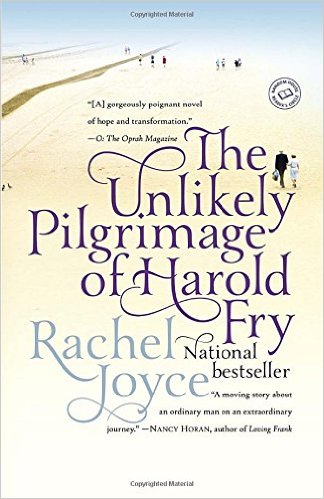Harold Fry is a retired sales rep, and a worn down husband. Up to the time he retires he was a "passive observer of his own life", but that changes as we walk with him and ponder over his life.
His passive response to his past has a lot to do with his wife, his son, and events at work over a long career. He receives a letter and learns that his friend from work twenty years ago, Queenie Hennessy, has cancer. It has been years since he had any contact, but he decides to go see her. It requires him to walk 627 miles and takes 87 days. (Not sure why he felt he had to walk but the book wouldn't be the book if he had just jumped in the car)
The journey and the experiences frees him from his past but it also seems to offer some freedom to the reader. His wife worries a lot but then she winds up being freed from her past. We experience the walk ourselves and as a lifetime of problems seem to slip away for Harold maybe some of our own problems start to seem a little different?
Three questions occur to me about Harold's Pilgrimage. Does making this trip make sense?
Could things really change because of the trip? Do the things that happened make sense?
A question of interest would be to learn "Why" Rachel Joyce wrote this book about Harold Fry? What did she want to do? Did she want the reader to leave wondering about Queenie Hennessy, his work friend who wrote him the letter, enough to then buy her next book? ( I haven't done that) She could have just wanted to write about why dull lives are not really dull if you think a lot about them. So go ahead and read the book and think about that
The book is well worth reading even if your not sure why it was written?


